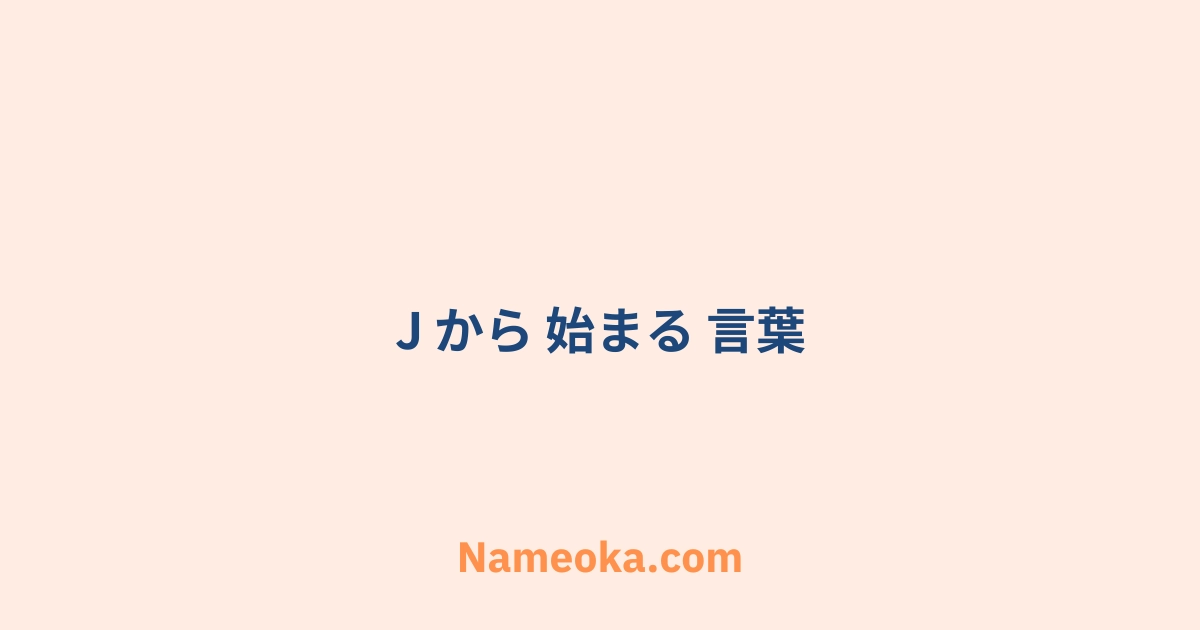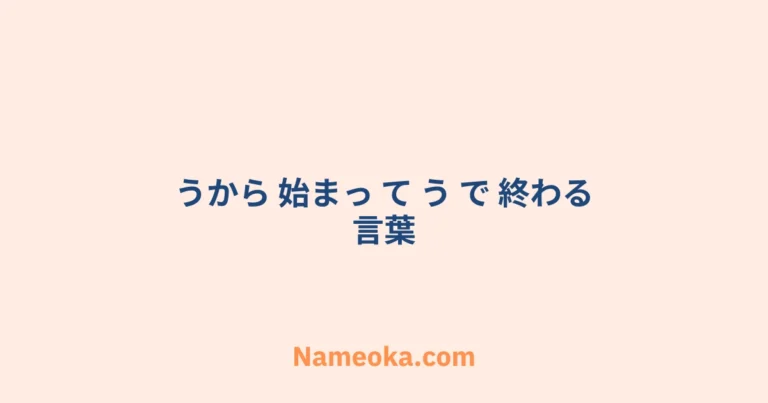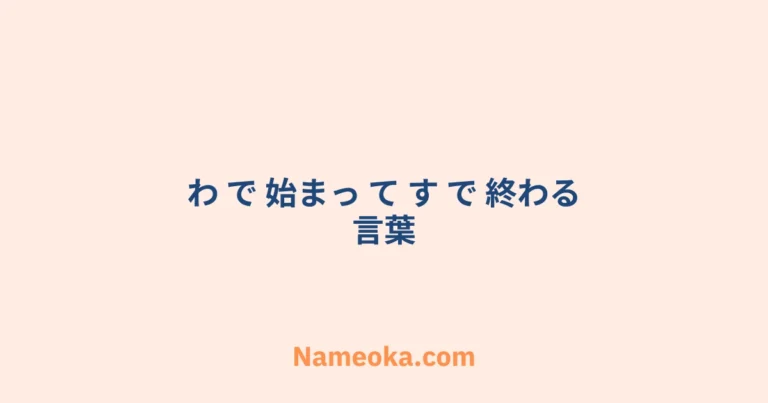日本語には多くの興味深い単語がありますが、特に「j から 始まる 言葉」はその独自性で注目されています。言語の奥深さを探求すると、新しい表現や意味が見えてきます。例えば、異なる文化背景を持つ言葉が、日本語の中でどのように発展してきたのかを知ることは、言語学習者にとって非常に有益です。この探求を通じて、言葉の豊かな世界をより深く理解することができるでしょう。この記事では「j から 始まる 言葉」に焦点を当て、その魅力に迫ります。.

50+ J から 始まる 言葉
- 1. ジュース
- 2. ジャケット
- 3. ジャズ
- 4. ジャパン
- 5. ジム
- 6. ジョギング
- 7. ジャンプ
- 8. ジャガイモ
- 9. ジャーナル
- 10. ジュエリー
- 11. ジュニア
- 12. ジャングル
- 13. ジョーク
- 14. ジャッジ
- 15. ジャム
- 16. ジョイント
- 17. ジョン
- 18. ジェスチャー
- 19. ジョイントベンチャー
- 20. ジョイスティック
- 21. ジオラマ
- 22. ジェル
- 23. ジョリー
- 24. ジャンル
- 25. ジャンク
- 26. ジャパニーズ
- 27. ジャンボ
- 28. ジェット
- 29. ジェネレーション
- 30. ジュラルミン
- 31. ジャーナリスト
- 32. ジェミニ
- 33. ジョブ
- 34. ジョイス
- 35. ジュン
- 36. ジェノサイド
- 37. ジェラシー
- 38. ジュピター
- 39. ジャガー
- 40. ジュート
- 41. ジェンダー
- 42. ジャーン
- 43. ジャグジー
- 44. ジャンクション
- 45. ジャージ
- 46. ジェイル
- 47. ジョージ
- 48. ジェネラル
- 49. ジャーナルクラブ
- 50. ジャガーリー
- 51. ジャンピング
Japanese Etymology For Words Starting With ‘J’
Etymology in Japanese can be quite fascinating, especially since the language draws from various sources, including native Japanese (yamato kotoba), Chinese (kanji), and Western languages (gairaigo). For words starting with ‘J’ in Japanese, let’s explore some notable examples:
日本 (Nihon) – The name “Japan” in English comes from the pronunciation of 日本, which does not start with ‘J’ in Japanese. However, the word ‘Japan’ is believed to have originated from early Mandarin or Wu Chinese pronunciation of 日本, which was heard by Marco Polo as “Cipangu” or “Jipangu.”
ジュース (jūsu) – Meaning “juice,” this is a loanword (gairaigo) from English. It retains a similar pronunciation to the original English word.
ジョギング (jogingu) – This is another loanword meaning “jogging,” derived from English. It reflects the common practice in Japanese of adapting English words by adjusting them to fit Japanese phonetics.
ジャガイモ (jagaimo) – Meaning “potato,” this word comes from the Portuguese “batata” via the term “nashi jagaimo,” referring historically to the “Nagasaki potato,” distinguishing it from native tubers.
ジャパン (Japan) – Uses the English pronunciation of the country’s name as a loanword, often used in contexts relating to foreign perspectives or branding.
女子 (joshi) – Meaning “girl” or “female.” “女” (jo) means “woman,” and “子” (shi) means “child.” Both components are rooted in Chinese characters borrowed by Japanese.
隧道 (jūdō) – Juudou means “judo,” a modern martial art. The name means “gentle way,” combining 柔 (jū), meaning “gentle” or “flexible,” with 道 (dō), meaning “way” or “path.”
These examples show how Japanese words starting with ‘J’ may derive from native Japanese roots, Chinese characters, or be adopted from Western languages and modified for Japanese use.
Common Phrases Using ‘J’ Words In Japanese Conversations
In Japanese conversations, there are several common phrases and expressions that prominently feature words starting with the “J” sound. Here are a few of them:
Jikan ga nai (時間がない) – This phrase means “I don’t have time” and is frequently used when someone is busy or running out of time.
Jibun de (自分で) – Meaning “by oneself” or “on one’s own,” this phrase is used when someone does something independently.
Jissai ni (実際に) – This means “in reality” or “actually,” often used to clarify or emphasize a point.
Jouzu desu ne (上手ですね) – This is a compliment meaning “You are good at it,” often used to praise someone’s skills or abilities.
Jibun no (自分の) – This phrase translates to “my own” or “one’s own,” often used to express possession or personal belonging.
Juu-bun (十分) – Meaning “enough” or “sufficient,” it’s used to indicate that a quantity or situation is adequate.
Joukyou (状況) – This means “situation” or “circumstances” and is often used in discussions to describe the current state of affairs.
Jidōsha (自動車) – While not a phrase, this word meaning “automobile” is frequently used in conversation regarding transportation.
Jitsuwa (実は) – Meaning “actually” or “in fact,” used to introduce a fact or truth that might be surprising or previously unknown.
Jishin ga aru (自信がある) – This means “to have confidence,” often used to express self-assurance in one’s ability.
These phrases showcase how the “J” sound is used in everyday Japanese conversation, providing useful expressions for various common situations.
The Impact Of Loanwords Starting With ‘J’ In Japanese Language
Loanwords, or “gairaigo” in Japanese, play a significant role in the evolution of the Japanese language, particularly those starting with the letter ‘J’. These words are typically borrowed from other languages and adapted to fit the phonetic and syntactic norms of Japanese. Let’s explore their impact:
Cultural Exchange and Globalization: Many loanwords starting with ‘J’ come from English and other languages, reflecting cultural and technological exchanges. For instance, “ジャズ” (jazu) for jazz and “ジーンズ” (jīnzu) for jeans illustrate how Japanese culture has been influenced by global trends, particularly from Western countries.
Enrichment of Vocabulary: Loanwords expand the Japanese lexicon by filling lexical gaps where native Japanese words might not exist. This allows for more precise and contemporary expressions, especially in fields like technology and pop culture. Words like “ジョブ” (jobu) for job have become an integral part of everyday language.
Phonetic Adjustments and Language Evolution: When adopted into Japanese, loanwords often undergo phonetic changes to align with the syllabic nature of the language. This adaptability shows the flexibility and evolving nature of Japanese phonology.
Youth and Pop Culture: Among younger generations, loanwords are frequently used in informal speech and popular media, contributing to a dynamic and ever-evolving language landscape. This can be observed in the media with words like “ジュース” (jūsu) for juice being commonplace.
Economic and Technological Relevance: Many ‘J’ loanwords are related to business and technology, sectors where Japan has global influence. Terms like “ジャーナリズム” (jānarisumu) for journalism or “ジェット” (jetto) for jet are widely used in professional contexts.
Identity and Language Purity Debate: The proliferation of loanwords has sparked discussions about language purity and national identity. Some purists argue that excessive borrowing may dilute traditional language, while others see it as a natural evolution reflecting a modern, interconnected society.
In conclusion, loanwords starting with ‘J’ enrich the Japanese language by introducing new concepts, reflecting cultural changes, and promoting linguistic diversity. While they pose challenges to linguistic purity, they are emblematic of a vibrant, evolving language influenced by continuous global interaction.
よくある質問
j から 始まる 言葉にはどんなものがありますか?
j から 始まる 言葉には、ジャガイモやジュース、ジャングルなどたくさんあります。.
j から 始まる 言葉は英語でもありますか?
はい、例えば日本語のジャイアンツは英語でGiantsといい、j から始まる言葉もあります。.
子供のためにj から 始まる 言葉を教える方法は何ですか?
子供には、ジャム、ジュース、ジョギングといった身近なj から 始まる 言葉を使ったカードゲームや絵本を使うと効果的です。.












